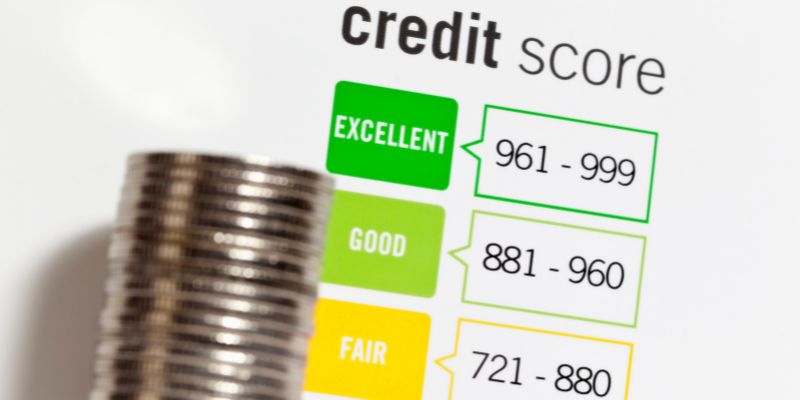One’s credit report may be requested for a variety of reasons. Such as when you apply for a mortgage, credit card, or even a rental! Credit checks are one way for lenders and landlords to assess a potential borrower’s or tenant’s risk level.
Regarding regular monthly expenses, rent is among the top priorities. Those on-time rent payments ought to be worth something, right? A year of apartment rent might be similar to taking out a loan and making equal monthly payments.
That’s the logic, in any way, that underlies the practice of checking tenants’ credit histories before granting a tenancy. Rent payments that are late or result in eviction may devastate a person’s credit, making it difficult to get future housing and other forms of credit such as loans and credit cards.
What Exactly Is A Credit Score?
Lenders, creditors, insurers, and landlords use a three-digit number depending on the credit history to determine whether or not to provide credit or a lease. A poor credit score may lead to increased interest rates or even denial of credit from financial institutions because of the perceived risk you pose to them.
Landlords and property managers may check your score or report whether or not they show rent payments since poor credit is a warning sign for some of them.

How Rental Applications Affect Credit Score
Most property owners check their applicants’ credit reports when deciding whether to accept a tenant. The credit check requires a hard inquiry, which might cause a reduction in credit score. Apartment seeking may be given the same weight as looking for a mortgage or vehicle loan in terms of inquiries (10% vs. 10%, respectively), which is good news.
According to a FICO representative, the unique FICO Score inquiry treatment logic includes a wide range of potential queries for use in tenant screening. So, if you apply for many apartments simultaneously, only the first one you submit will be considered.
Some property managers and landlords won’t run your credit before renting to you. If the landlord does not do a credit check, your application for an apartment will not negatively affect your score.
You may be certain that the application process will not negatively impact your credit if your prospective landlord uses the soft credit pull. One way to discover out is to ask the property owner if a credit check is required as part of the application procedure.
What Happens To Credit Score If You’re Late On Rent?
Unfortunately, renting might hurt credit scores. When a landlord reports an unpaid rent, lease violation, eviction, or unpaid move-out balance, it may affect a tenant’s credit score. Rental payments over 30 days past due may be turned over to a collection agency, which may negatively affect the credit score.
What Happens To Credit Score When Landlords Repeatedly Check It?
Multiple potential landlords may check the credit if you look at multiple units to see which one best suits your requirements and budget. However, the impact on the credit score is not as severe as it would first seem.
FICO claims that its scoring algorithm paves the way for customers to “rate-shopping” while looking for a loan, or in this instance, an apartment. Within 30 days of an apartment application, FICO will disregard any inquiries.
Repeated apartment searches won’t damage credit scores unless you keep them open for an extended period. Regardless of the kind of credit application, all inquiries filed within 14 days are included as a single inquiry in the Vantage Score credit scoring model.
If you apply for a loan but decide to rent instead because you can’t find a decent enough deal, the hard pulls from both applications will be tallied together and go against your credit.
Rejections from rental agencies will not affect the credit score. If a landlord uses a tenant’s credit report as a basis for rejecting or increasing their rent, the landlord must explain where they received the tenant’s credit report. The potential renter may then get a free credit report.
How Can My Credit Score Increase?
Since your credit report is an accumulation of your financial history, several factors may be worked on to raise your score.
- Always begin by ordering the credit reports regularly and monitoring the credit score. All three reports are available free of cost, and subscribers to the monitoring service may get updates for a monthly subscription.
It will be simpler to look for discrepancies if you do this. Also, one can spread out the free yearly reports to monitor the credit score without spending any money.
- The next step is to maintain on-time bill payments since this aspect of your credit report makes up around 35% of your total score. If you anticipate missing a payment and want to make alternative arrangements with the lender, you should do so as soon as possible.
- If possible, avoid using a lot of different cards at once. Reduce the number of cards, but don’t rip up the existing ones. Try using them once every several months and paying the sum in full each time.
If you have a lot of available credit but have only utilized a small percentage of it, your credit report will seem better.
- When it comes to new accounts, use caution. When you apply for a new credit card, a “hard inquiry” is added to your credit report, which may affect your score if you make too many of them. Limiting hard queries is advised if your credit is already insecure.
Conclusion
If you are going to get an apartment on rent or thinking of purchasing a house, or have applied for a loan, you can expect a credit check to be part of the process. You may manage your credit by grouping comparable queries together and being aware of how hard credit inquiries affect the credit score.





